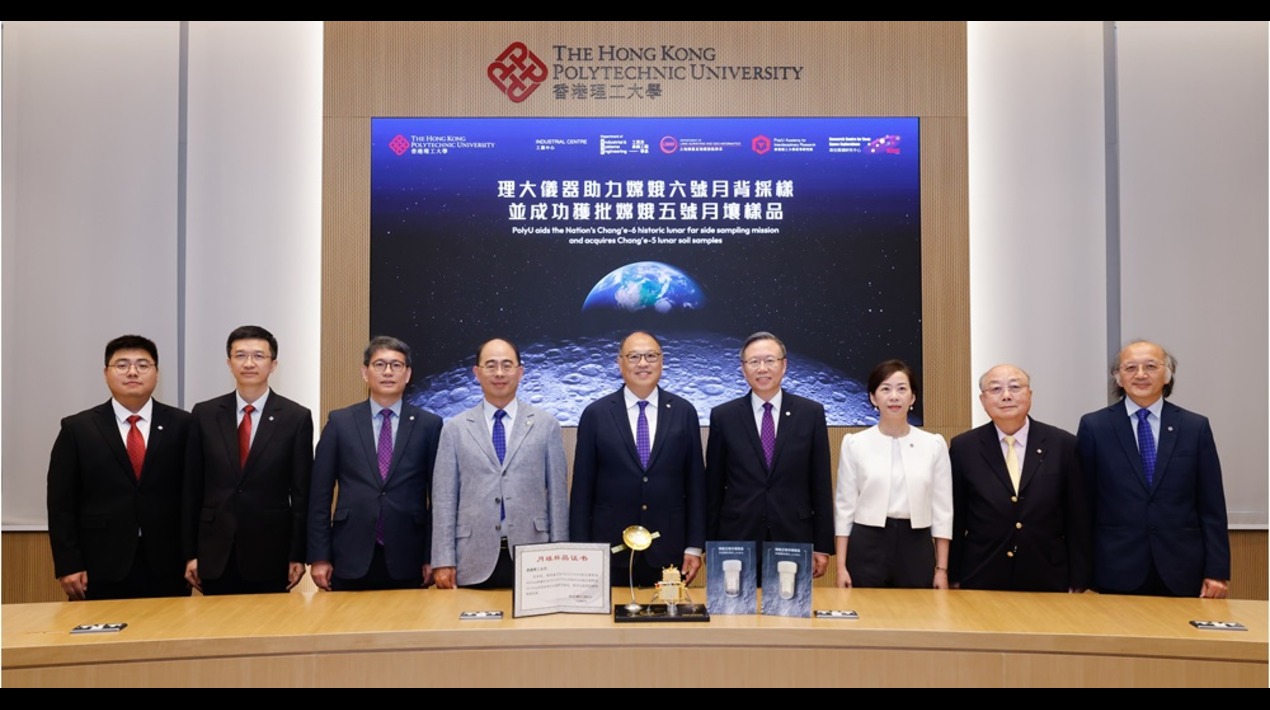
|
Getting your Trinity Audio player ready...
|
In the complex digital landscape of 2024, Malaysia finds itself at a critical juncture, where the push for innovation is met with the daunting challenge of ensuring cyber resilience. The country’s digital set-up is increasingly under siege, with cyber threats ranging from sophisticated attacks on critical infrastructure to targeted personal intrusions becoming more prevalent.
 Malaysia’s organisations face a relentless onslaught of cyber threats, including phishing scams, ransomware attacks, and data breaches. A high-profile data breach within a major financial institution was a stark reminder of the urgent need for a comprehensive cybersecurity framework. This incident has highlighted the lacunae in the country’s digital systems and shaken public trust in the security of digital transactions and information.
Malaysia’s organisations face a relentless onslaught of cyber threats, including phishing scams, ransomware attacks, and data breaches. A high-profile data breach within a major financial institution was a stark reminder of the urgent need for a comprehensive cybersecurity framework. This incident has highlighted the lacunae in the country’s digital systems and shaken public trust in the security of digital transactions and information.
Against this backdrop, the imperative for robust cybersecurity measures has never been more pronounced as the repercussions of these threats extend beyond data security, posing significant risks to national security and economic stability.
Amidst these challenges, technology emerges as a double-edged sword, offering both solutions and vulnerabilities. The rapid advancements in cybersecurity technology provide a glimmer of hope, offering innovative tools and strategies to combat cyber threats. However, these advancements also present new challenges as cybercriminals adapt their tactics to exploit emerging technologies.
In response to these challenges, zero-trust architecture has gained traction as a proactive approach to cybersecurity. This principle advocates for the continual verification of all entities attempting to access network resources, whether internal or external. By adopting this approach, organisations can significantly reduce their risk exposure and fortify their defences against cyber threats.
Additionally, the importance of cloud security in safeguarding critical infrastructure cannot be overstated. Integrating public cloud services, APIs, and hybrid infrastructure is crucial in enhancing resilience against cyber threats. Moreover, leveraging data analytics and AI-powered threat detection enhances proactive threat mitigation, ensuring the integrity of essential infrastructure.
 Security must take precedence over all other considerations in Malaysia’s digital landscape. This includes ensuring secure access to applications and data and implementing robust data protection measures. By prioritising cybersecurity, public service officers can work securely from home or the office without compromising the security of sensitive information.
Security must take precedence over all other considerations in Malaysia’s digital landscape. This includes ensuring secure access to applications and data and implementing robust data protection measures. By prioritising cybersecurity, public service officers can work securely from home or the office without compromising the security of sensitive information.
The challenges of the evolving cyber threat landscape require a multifaceted approach. While technological advancements offer promising solutions, a comprehensive cybersecurity framework that encompasses best practices, user awareness, and a culture of vigilance is essential to safeguard Malaysia’s digital future.
The 9th Annual Malaysia OpenGov Leadership Forum, held at Sofitel Kuala Lumpur Damansara on 4 July 2024 delved more deeply into these pressing issues. This event brought together key stakeholders from various sectors, including government officials, industry leaders and cybersecurity experts, to explore how to enhance Malaysia’s cybersecurity posture.
Participants discussed Zero Trust frameworks, AI in threat detection, and cloud security. Case studies highlighted successful cybersecurity strategies, emphasising the need for continuous improvement, scalability, investment in technologies, training programs, and public awareness to protect Malaysia’s evolving digital landscape.
The forum highlighted the importance of collaborative efforts in building resilient digital infrastructures and shared insights on the latest cybersecurity technologies and practices advancements.
Opening Remarks

Mohit Sagar, CEO and Editor-in-Chief at OpenGov Asia, acknowledges that Malaysia’s journey into the digital age has brought unparalleled opportunities alongside formidable cybersecurity challenges. He stresses the critical importance of strong cybersecurity defences as the nation advances in digital sectors like finance, healthcare, and government services.
“Malaysia is experiencing rapid digital transformation across industries, necessitating heightened cybersecurity measures to safeguard critical assets and infrastructure,” Mohit says.
The evolving threat landscape poses significant challenges, ranging from ransomware attacks to sophisticated cyber espionage, underscoring the urgency of proactive cybersecurity strategies. In response, the Malaysian government has launched various initiatives to bolster cybersecurity, including the National Cyber Security Policy and investments in cybersecurity infrastructure.
Zero Trust Architecture (ZTA) represents a paradigm shift in cybersecurity, challenging traditional perimeter-based models by emphasising continuous authentication and authorisation for all devices and users, regardless of their location. This “never trust, always verify” approach is crucial in fortifying cyber defences in the digital age.
By embracing cloud-native security principles, organisations can seamlessly integrate ZTA, enhancing protection against evolving threats while ensuring scalability and flexibility. ZTA’s user-centric focus on identity and access management helps mitigate insider threats and unauthorised access attempts, thereby significantly enhancing overall cybersecurity.
“Moreover, Artificial Intelligence emerges as a game-changer in cybersecurity, offering advanced threat detection and mitigation capabilities,” Mohit reveals. “AI-powered solutions enable organisations to identify and neutralise cyber threats in real-time proactively.”
Leveraging AI to analyse vast amounts of threat intelligence data allows organisations to identify and respond to emerging threats quickly and accurately. AI-powered behavioural analysis techniques facilitate proactive threat detection by recognising anomalous patterns and deviations from normal user actions, enabling organisations to thwart potential cyber-attacks before significant damage occurs.
Additionally, AI-driven incident response capabilities streamline the mitigation process, automating threat response actions and minimising the impact of cyber incidents on business operations.
Distributed Denial of Service (DDoS) attacks also continue to pose a significant threat to organisations, disrupting business operations and causing financial losses. Complete DDoS protection solutions safeguard against these malicious attacks.
Implementing a global network architecture enables efficient DDoS mitigation by distributing attack traffic across multiple data centres, ensuring minimal disruption to legitimate traffic flow.
A multi-layered approach to DDoS protection combines network-level filtering, rate limiting, and application-layer security measures to mitigate attacks at various stages of the OSI model. Continuous monitoring of global DDoS attack trends and leveraging real-time threat intelligence to adapt mitigation strategies, ensuring proactive protection against emerging DDoS threats.
As organisations increasingly adopt cloud-based infrastructures, securing cloud workloads becomes paramount. Edge computing platforms offer enhanced security controls and performance optimisation for cloud-based applications and services. Comprehensive security solutions protect cloud workloads from emerging threats, including web application firewalls (WAF), bot management and data loss prevention (DLP).
Mohit believes that leveraging edge computing capabilities optimises the performance of cloud-based applications and services, reducing latency and improving user experience without compromising security.
“Zero Trust Network Access solutions ensure secure access to cloud workloads, implementing granular access controls and continuous authentication to prevent unauthorised access attempts,” he observes.
In an era of stringent regulatory requirements and growing privacy concerns, ensuring compliance with industry standards and data protection regulations is imperative. Compliance-focused solutions help organisations navigate the complex landscape of regulatory compliance. Assisting organisations in achieving compliance with industry-specific regulations, such as GDPR, HIPAA, and PCI DSS, through tailored security solutions and regulatory guidance is crucial.
Prioritising data privacy protection through encryption, data masking, and access controls safeguards sensitive information and mitigates the risk of data breaches. Facilitating continuous monitoring and auditing of security controls enables organisations to demonstrate compliance with regulatory requirements and industry best practices.
Proactive measures are imperative to mitigate the risks associated with cybersecurity threats. Allocating resources to cybersecurity initiatives ensures robust protection against evolving threats and vulnerabilities.
Building cyber resilience enables organisations to withstand and recover from cyber-attacks, minimising disruption to business operations. Collaboration among government agencies, industry partners, and cybersecurity experts fosters a collective approach to cybersecurity, enhancing overall defence capabilities.
As the world navigates the digital landscape, prioritising cybersecurity is essential, asserts Mohit. Evolving strategies and technologies help organisations stay ahead of threats and protect critical assets. Promoting awareness and education fosters vigilance and resilience, making cybersecurity a collective responsibility for individuals, companies and governments worldwide.
“We appreciate your dedication to advancing cybersecurity practices,” Mohit concludes. “Together, we can pave the way for a more secure and resilient digital future.”
Welcome Address

Ayush Verma, Head of Solutions Engineering for Southeast Asia & Korea at Cloudflare, discussed the latest cybersecurity trends and offered insights on staying ahead in the rapidly evolving digital transformation landscape.
Ayush highlighted the importance of addressing pressing cybersecurity issues head-on, stressing that the need for robust measures has never been more critical. Cyber threats not only compromise data security but also pose significant risks to national security and economic stability. Amidst these challenges, technology acts as a double-edged sword, presenting both innovative solutions and new vulnerabilities.
In response to increasing cybersecurity challenges, zero-trust architecture has rapidly gained traction as a proactive approach to safeguarding digital environments. This strategy advocates for verifying all entities attempting to access network resources, whether internal or external. It is built on continual verification, ensuring every access request is scrutinised regardless of source. By implementing zero-trust architecture, organisations can significantly reduce their risk exposure and enhance their defences against cyber threats.
The challenges of the evolving cyber threat landscape require a multifaceted approach. While technological advancements offer promising solutions, a comprehensive cybersecurity framework that encompasses best practices, user awareness, and a culture of vigilance is essential to safeguard Malaysia’s digital future. This holistic approach involves not only adopting cutting-edge technologies but also cultivating a cybersecurity-conscious culture among all stakeholders.
The importance of public-private partnerships in developing and implementing effective cybersecurity strategies cannot be overstated. Collaboration between the government, private sector, and academia is vital in addressing the complex challenges of cyber threats. It allows stakeholders to share knowledge, resources and best practices, strengthening the nation’s security posture.
Ayush believes that the Malaysia OpenGov Leadership Forum marks a pivotal moment for reaffirming commitment and charting a course towards Malaysia’s secure and resilient digital future. The forum exemplifies a collective commitment to bolstering cybersecurity and enhancing digital resilience.
Such collective efforts are essential for ensuring Malaysia stays at the forefront of technological innovation while upholding the highest cybersecurity standards. He is confident that through collaboration, organisations can build a robust digital infrastructure, effectively mitigate cyber threats, and maintain Malaysia’s leadership in technology and cybersecurity
In Conversation With
Mohit emphasises that cyberattacks are unpredictable and can happen anytime, highlighting the need for robust infrastructure to mitigate threats. He stressed the importance of proactive measures, including investing in cybersecurity solutions, conducting regular assessments, implementing incident response plans, raising employee awareness, and promoting a strong security culture within organisations.

Ayush Verma, Head of Solutions Engineering, Southeast Asia & Korea at Cloudflare, agrees that real-time threat intelligence stands as a cornerstone in modern cybersecurity. It fundamentally alters how organisations approach threat detection and response. Its impact is profound, offering a dynamic shield against cyber threats and ultimately preventing potential breaches.
“One of its primary advantages is early detection. Real-time threat intelligence provides organisations with up-to-the-minute information about emerging threats,” Ayush elaborates. “This immediacy allows them to detect potential attacks at their inception, significantly reducing the window of vulnerability.”
Moreover, real-time threat intelligence enables proactive defence. Organisations can leverage this intelligence to identify and mitigate vulnerabilities in their systems before cybercriminals exploit them. By staying ahead of potential threats, organisations can effectively fortify their defences.
Another critical benefit is faster response times. Real-time threat intelligence empowers organisations to respond to cyber threats swiftly and decisively. This agility is crucial in containing breaches and minimising their impact, ultimately reducing the time it takes to identify and neutralise threats.
Furthermore, real-time threat intelligence enhances decision-making. Providing organisations with timely and relevant information allows them to make informed decisions about their cybersecurity strategy. This includes prioritising threats based on their potential impact and ensuring that resources are allocated efficiently.
Lastly, real-time threat intelligence bolsters incident response capabilities. Organisations can respond to cyber threats instantly, effectively containing and mitigating a breach’s impact. This proactive approach is instrumental in minimising damage and swiftly restoring normal operations.
Real-time threat intelligence is a critical tool in the fight against cyber threats. Its ability to provide timely and relevant information empowers organisations to stay one step ahead of cybercriminals, ultimately preventing potential breaches and safeguarding sensitive data.
Organisations can employ several proactive strategies to defend against ransomware attacks. Firstly, it is crucial to maintain up-to-date backups of critical data. Regularly backing up data to offline or secure cloud storage ensures that even if data is encrypted by ransomware, it can be restored without paying the ransom.
Secondly, organisations should educate employees about the risks of ransomware and how to recognise phishing attempts often used to deliver ransomware. Implementing robust email security measures, such as spam filters and email authentication protocols, can help prevent phishing emails from reaching employees’ inboxes.
Moreover, organisations should regularly patch and update their software and systems to protect against known vulnerabilities that ransomware may exploit. Deploying endpoint protection solutions and firewalls can also help detect and block ransomware attacks.
On being asked how it supports organisations, Ayush explained that Cloudflare aids in preventing, identifying, responding to, and recovering from ransomware attacks through its various services. Cloudflare’s security solutions, like Cloudflare Firewall Rules and Cloudflare Access, help prevent unauthorised access to networks and applications, reducing the risk of ransomware infections.
Cloudflare’s Web Application Firewall (WAF) can also help detect and block malicious traffic associated with ransomware attacks. Additionally, Cloudflare’s DDoS protection services can help mitigate the impact of ransomware attacks that attempt to disrupt services through denial-of-service attacks.
In the event of a ransomware attack, Ayush emphasises that Cloudflare’s threat intelligence services can help organisations identify and respond to the attack quickly. Cloudflare’s logging and monitoring capabilities give organisations real-time visibility into their network and application traffic, enabling them to detect and mitigate ransomware attacks more effectively.
“Cloudflare’s DDoS protection and content delivery network (CDN) services can help organisations recover from ransomware attacks by ensuring their websites and applications remain available to users even during an attack,” he concludes.

Razak Idris, Head of IT Strategy and Project Management at Bank Muamalat provided a compelling perspective on the critical role of cybersecurity in ensuring Malaysia’s secure and resilient digital future.
He acknowledges the transformative potential of AI in cybersecurity, particularly in enhancing threat detection and response capabilities. Its ability to process vast amounts of data quickly and identify patterns and anomalies that human analysts might miss is crucial for financial services institutions (FSI), where the volume and complexity of transactions create numerous potential vulnerabilities.
Razak states that incorporating AI-powered security systems in financial institutions while maintaining regulatory compliance is a complex but essential endeavour. He outlines several measures financial firms can take to ensure successful implementation:
Comprehensive Risk Assessment and Planning
The first step is conducting thorough risk assessments. Financial firms must identify potential risks associated with AI implementation and evaluate their impact on data security and regulatory compliance. Developing a strategic plan that outlines timelines, resource allocation, and milestones is crucial. This plan must align with regulatory requirements and the firm’s cybersecurity strategy.
Robust Data Governance and Management
Ensuring data quality and integrity is vital. Financial firms should implement data validation and cleansing processes to maintain the accuracy, completeness, and reliability of the data used by AI systems. Adhering to data privacy regulations such as GDPR, CCPA, and local laws is imperative. Employing data anonymisation and encryption techniques helps protect sensitive information.
Implementing AI Ethically and Transparently
Developing and enforcing ethical AI use policies is essential to avoid biases and ensure fairness. Transparency and explainability of AI models are crucial for maintaining regulatory compliance and building trust with stakeholders. AI systems should provide clear and understandable explanations of their decisions.
Strengthening Cybersecurity Infrastructure
A multi-layered security approach is necessary, including implementing firewalls, intrusion detection/prevention systems, and endpoint protection. AI-powered threat detection systems can detect anomalies and potential threats in real-time, offering proactive protection against cyber attacks.
Continuous Monitoring and Incident Response
Using AI to monitor real-time network traffic, user behaviour, and system activities can help detect and respond to threats promptly. Developing and regularly updating an incident response plan that includes AI-specific scenarios and conducting regular drills ensures readiness.
Regular Audits and Compliance Checks.
Regular internal audits are critical to assess the effectiveness of AI-powered security systems and ensure compliance with regulatory requirements. Engaging third-party auditors for independent assessments and recommendations for improvement adds an extra layer of scrutiny.
Employee Training and Awareness
Implementing comprehensive cybersecurity training programs educates employees on best practices and the specific role of AI in security. Regular awareness campaigns inform employees about the latest threats and the importance of maintaining compliance.
Razak believes that FSI is one of the nation’s crucial sectors, playing a pivotal role in the economy by facilitating transactions, safeguarding assets, and providing financial stability. The sector’s importance makes it a prime target for cyber threats, underscoring the need for robust cybersecurity measures.
He recognises that protecting the financial sector involves safeguarding individual institutions and maintaining the trust and stability of the entire financial system, which is essential for national economic health.
Tech Showcase
Ayush Verma ∶ Cybersecurity is vital for maintaining operational integrity, protecting user data, and ensuring compliance with regulatory standards
Ayush Verma, Head of Solutions Engineering for Southeast Asia & Korea at Cloudflare, underscores the critical importance of cybersecurity in today’s digital landscape. The impact of a cyberattack can be extensive and devastating, affecting various facets of a business.
In Malaysia’s digital landscape, prioritising security is paramount. Ensuring secure access to applications and data, alongside implementing robust data protection measures, is essential. This shift towards a secure working environment is crucial not only for maintaining operational efficiency but also for safeguarding critical information. By placing security at the forefront, Malaysia can ensure the integrity and resilience of its digital infrastructure.
Ayush explains that Cloudflare empowers organisations to connect with users, create innovative digital services, and protect data. It provides comprehensive security solutions that safeguard data, applications, infrastructure, and users. With features like DDoS protection, web application firewalls, and zero-trust security models, Cloudflare ensures robust defence against a wide range of cyber threats.
This multi-layered security approach is vital for maintaining the integrity and confidentiality of sensitive information, enabling organisations to operate securely and confidently in a digital-first world.
According to Ayush, robust cybersecurity measures are essential for reducing risk, ensuring business continuity, safeguarding user data and privacy, preventing revenue loss, and avoiding regulatory repercussions.
One of the most significant consequences of a cyberattack is economic loss. Cyberattacks can lead to substantial revenue losses, increased expenses for remediation and recovery, and disruptions in the supply chain. These financial burdens can cripple businesses, especially if they are not adequately prepared to handle such incidents.
Beyond monetary losses, cyberattacks can severely impact a company’s brand reputation. When organisations experience data breaches or temporary outages, their brand image often suffers. This negative perception can result in unfavourable coverage and the loss of current and potential customers, who may turn to competitors they perceive as more secure and reliable.
Another critical consideration is regulatory concerns. Companies that fail to protect user data per data protection laws, such as the General Data Protection Regulation (GDPR) or the Health Insurance Portability and Accountability Act (HIPAA), can face substantial fines. These penalties not only strain financial resources but also damage a company’s credibility and trustworthiness in the eyes of consumers and stakeholders.
Chief Information Security Officers (CISOs) across industries face a continuously evolving threat landscape. They must defend their organisations against an increasing variety of cyber threats while also adapting to new working methods that introduce additional complexity. While it might be tempting for CISOs to rely on traditional security tools, the strategies and solutions that worked in the past are often inadequate for addressing today’s sophisticated threats.
Zero-day exploits are a particularly concerning threat. These attacks exploit previously undiscovered security vulnerabilities, leading to significant reputational and financial damage. Cloudflare plays a crucial role in defending against such threats. By leveraging insights from its extensive network, Cloudflare can quickly identify and neutralise zero-day threats. The protection applied to one application is swiftly extended to the entire Cloudflare community, providing a robust defence mechanism within seconds.
Ayush reiterates that cybersecurity is vital for maintaining operational integrity, protecting user data, and ensuring compliance with regulatory standards. The economic, reputational, and regulatory impacts of cyberattacks highlight the necessity for organisations to adopt advanced cybersecurity measures. By staying ahead of evolving threats and implementing comprehensive security strategies, businesses can safeguard their assets and maintain the trust of their customers and stakeholders.
Closing Remarks
Ayush expressed his gratitude to the participants who attended the 9th Malaysia OpenGov Leadership Forum, acknowledging the critical role of collaboration and the exchange of ideas in advancing cybersecurity practices across the region. He also appreciated the active support and participation of all stakeholders, which contributed to the forum’s success.
The importance of implementing advanced technologies and innovative security strategies to protect sensitive data and critical infrastructure cannot be overstated. By focusing on continuous improvement and innovation, organisations can adapt to the ever-changing threat landscape and enhance their security posture.
Platforms like the OpenGov Leadership Forum offer a valuable opportunity for leaders to share their knowledge and experiences, facilitating the development of more robust and more responsive security systems. This mutual learning environment is essential for staying ahead of emerging threats and ensuring robust cybersecurity defences.
Ayush advocates for a holistic approach to cybersecurity, emphasising that training and awareness should extend beyond IT staff to include all employees. He pointed out that everyone in an organisation plays a crucial role in maintaining data security and mitigating cyber attack risks. By cultivating a culture of security awareness, organisations can ensure all employees are vigilant and proactive in safeguarding sensitive information.
He believes the discussions and insights shared during the forum will help leaders in both the public and private sectors better understand the challenges and opportunities presented by the evolving cyber threat landscape. He was confident that the relationships formed during the event would last, leading to initiatives that bolster cybersecurity across the region.
Concluding his remarks, Ayush urged all participants to keep innovating and stay committed to protecting their organisations from cyber threats. He knows that through cooperation and knowledge sharing, a safer and more resilient digital ecosystem would be created. This collaborative effort is crucial for building a secure future and mitigating cyber risks.
Mohit expressed appreciation for the valuable discussions held during the forum, noting they provided critical insights into enhancing cybersecurity infrastructure. He echoed Ayush’s observations, stressing the escalating complexity and unpredictability of cyber threats. This underscored the necessity for organisations to remain vigilant at all times, prepared to confront potential attacks that can arise unexpectedly.
Furthermore, Mohit stressed the importance of adopting a preemptive approach to cybersecurity. He highlighted the effectiveness of real-time threat intelligence strategies in enabling organisations to detect and respond to threats swiftly. This proactive stance is crucial in today’s environment, where cyber threats continue to grow in sophistication, frequency, and diversity.
Mohit also emphasised the critical role of collaboration between the public and private sectors in developing comprehensive and effective security solutions. He believes that joint efforts are essential to tackling the complex challenges posed by cyber threats and to building resilient cybersecurity frameworks.
Mohit urged all participants to continue prioritising innovation and collaboration in addressing cybersecurity challenges. He expressed confidence that by sharing knowledge and experiences, a safer and more resilient digital environment could be built for the future.
“Never underestimate the power of sharing and cooperation in cybersecurity,” Mohit ends. “Together, we can build a safer and more resilient digital environment for the future.”
















